The most difficult losses: Grieving a teammate while carrying on
It's the long pauses and wobbly words that give it away when they talk about him. Fifty years have passed, but those who knew and played with Tim Horton miss him just as much as when it happened: Feb. 21, 1974, when he rolled his Pantera over the grass median on the highway driving home from a game, resulting in his death at age 44.
"It was heart-wrenching," says former Sabres forward Don Luce, who also played with Horton for two seasons on the Rangers. The two men and their families were close friends. "It was very, very devastating."
Horton was in his 24th NHL season at the time, and his second with the Sabres. He'd spent most of his career - 20 years - as a Maple Leaf, joining Buffalo at the behest of general manager and personal friend Punch Imlach, who coveted the veteran's locker-room presence and defensive prowess after coaching him for more than a decade in Toronto.
"He was the godfather of the team," former longtime equipment manager Rip Simonick says.
"We were literally in tears when it happened," he says. "The whole team."
Any loss is heartbreaking, but those who've endured the death of a teammate know a different kind of pain.
What Luce remembers most is the early morning phone call with the bad news that roused him and his wife out of bed. She answered it. "It was stunning. It was hard to believe. It's like that old saying: you got the wind knocked out of you," he says. "It was just so hard to fathom and so upsetting. It was mind-boggling."
The sound of that call resurfaced for Luce this summer after learning about the death of another active NHLer, Johnny Gaudreau, who died alongside his brother Matthew Gaudreau after being hit from behind while cycling on the eve of their sister's wedding.
"When I first heard of it, it was just like: again. It was unbelievable," Luce says. "I just had the memories of that call. I thought about his parents, who would have got the call, and how devastating and heart-wrenching that call is. It was for myself, when Timmy passed. It really puts a lot of things about life into perspective really quickly."
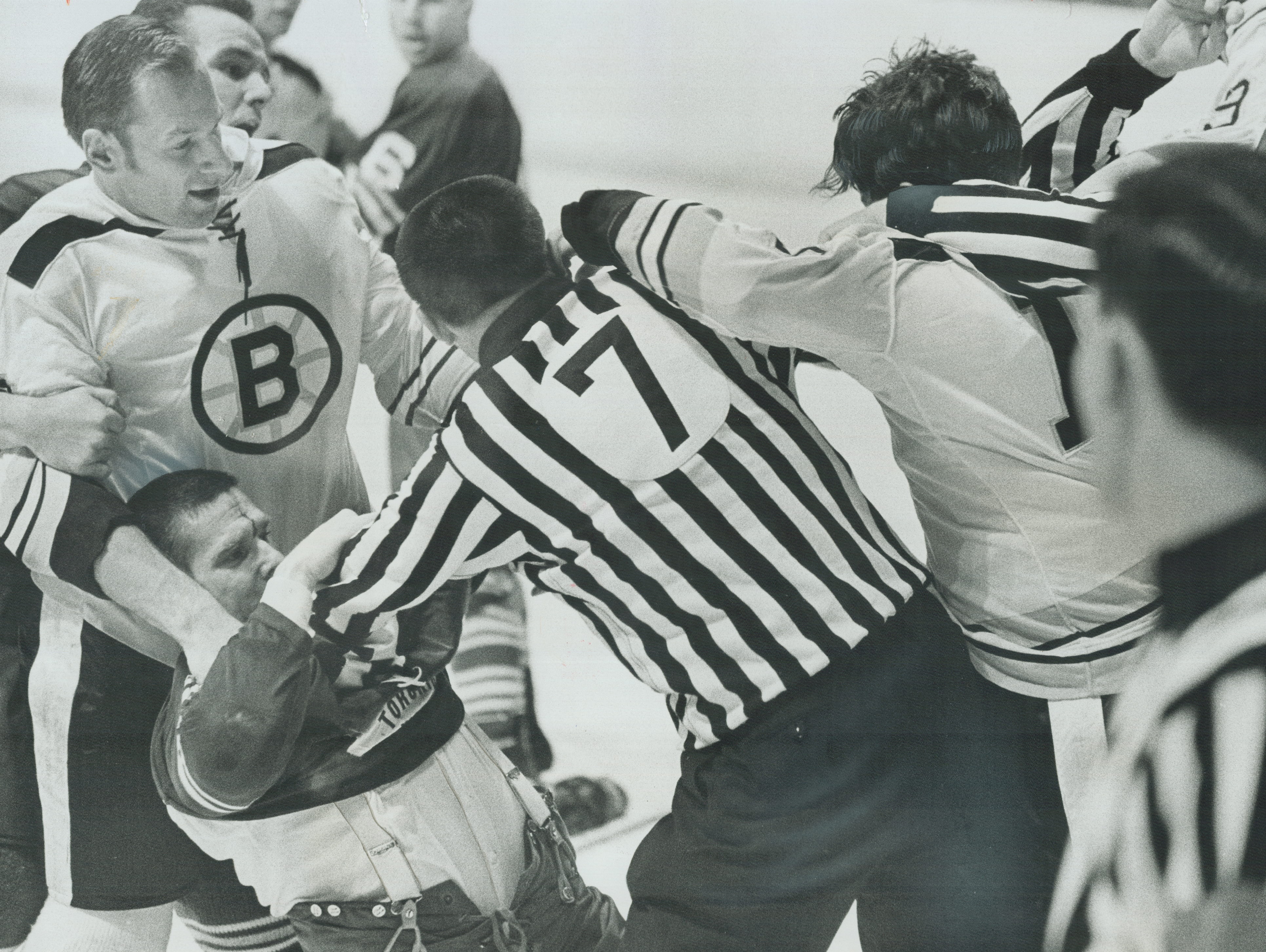
Tim Horton's life and death
By now, Horton's name is synonymous with coffee and doughnuts, and the restaurant chain he founded is an enduring symbol of Canadiana. But in 1974, his reputation was chiefly built on one thing: hockey.
"He had this solid, dependable, cool guy who's all under control attitude on the ice," former Sabres captain Gerry Meehan says. "To play the game as long and as effectively as he did requires constant commitment, effort, hard work, courage, adaptability, resilience - all the good stuff."
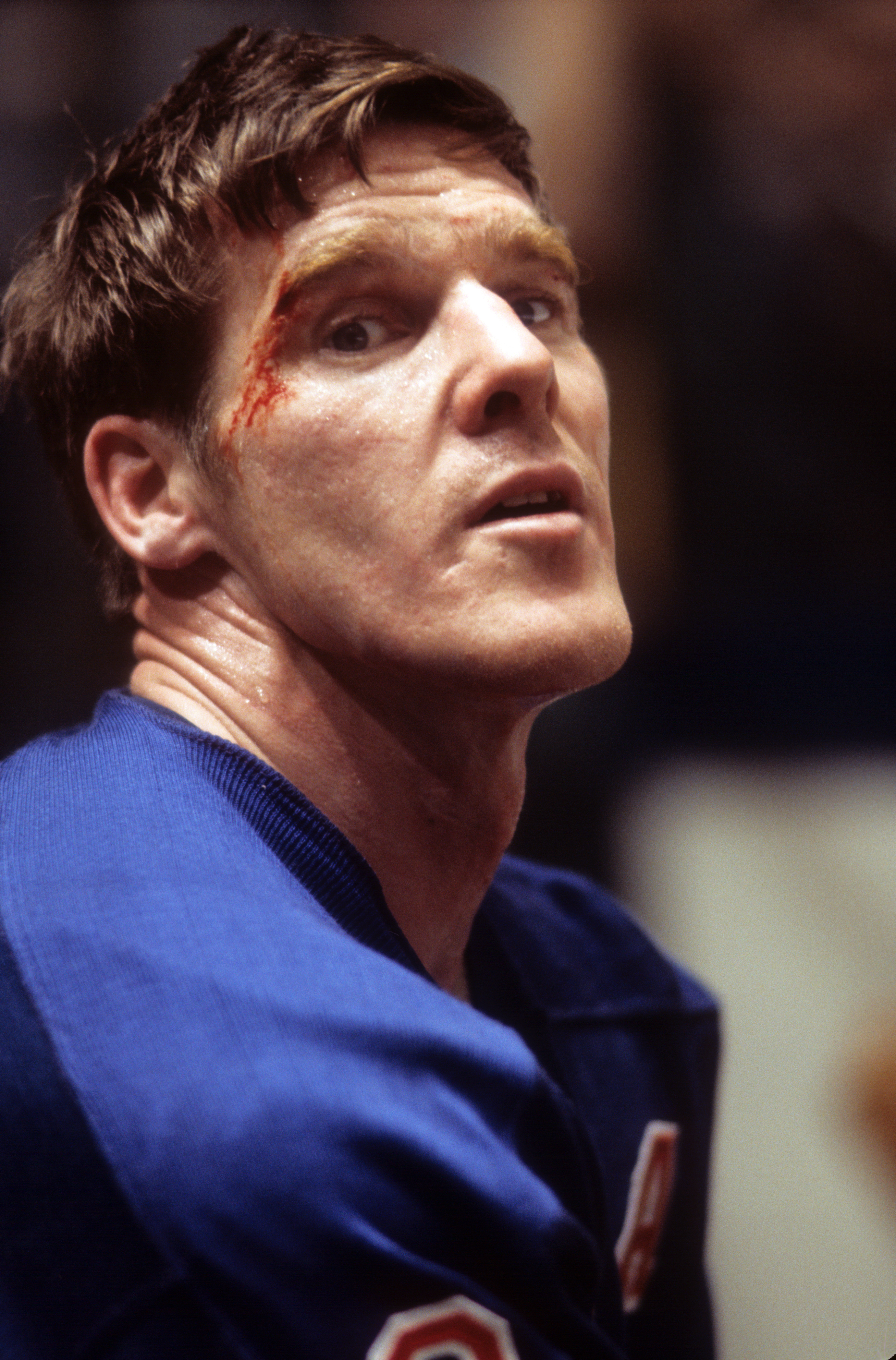
Horton entered the league in 1950 as a 20-year-old; his 24 seasons still rank him fourth for most NHL seasons played, behind Mark Messier, Gordie Howe, and Chris Chelios. He tried to retire many times - once in earnest in 1969 and every year thereafter somewhat less seriously.
"When he came to Buffalo, he kind of changed the dynamic of the team in the sense that he was kind of the anchor of stability," Meehan says. "We made the playoffs in 1972-73, and I would largely attribute it to that."
Horton insisted he was done after that season. He was already a four-time Stanley Cup champion and six-time All-Star. His chain of about 40 coffee shops was beginning to flourish, and he could envision a life outside hockey. That lasted until days before the puck dropped on the 1973-74 season, when Imlach persuaded him to play another year. The Pantera was part of his compensation, as the second-oldest player in the league.
"He was the most physically fit guy in the locker room," Simonick says. "He was elderly, but he had a strong impact, stronger than any player in the locker room. His play was phenomenal."
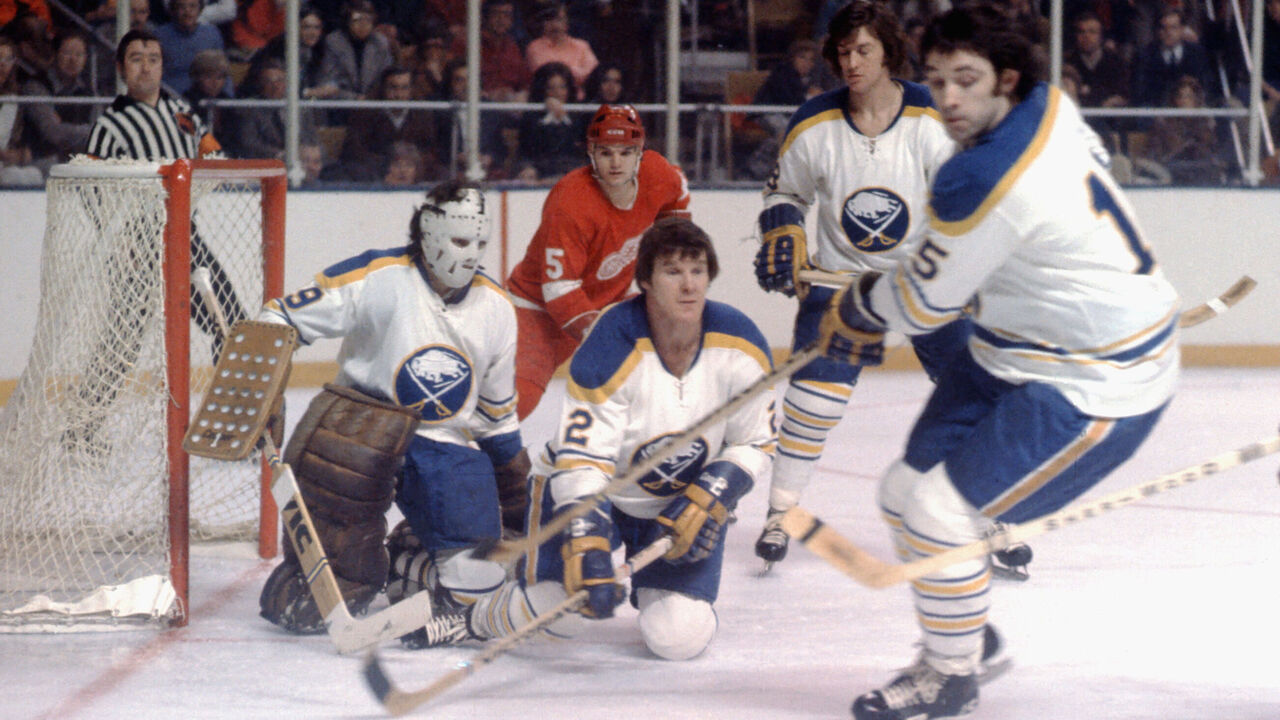
Horton played 1,445 NHL regular-season games; the last was on the night of his death. Nursing an injured jaw, he sat out the third period but was still named one of the game's three stars in Buffalo's 4-2 loss to Toronto at Maple Leaf Gardens. Instead of catching the team bus back to Buffalo, Horton received permission to drive his Pantera home. He stopped along the way for a business meeting with partner Ron Joyce before leaving again in the early hours of Feb. 21.
Reports vary on what Horton consumed prior to driving. Perhaps vodka and soda, perhaps painkillers for his jaw. What's certain is he was going fast - police later estimated he was driving 100 mph (160 km per hour). His speed was reported by a passerby and subsequently attracted the attention of an Ontario Provincial Police officer, who tried to catch up but couldn't in time. When his Pantera was next spotted, it was in a mangled heap on the opposite side of the Queen Elizabeth Way. He hadn't been wearing a seatbelt, and his body was thrown 123 feet (37 meters).
The impact on the team was immediate.
"I can describe it as just numbness," Meehan says. "You go through this, and you know it's your job, and people are going to the game, and the world doesn't end, but it did end in a way, emotionally, for the whole team."
A teammate's death
The Sabres were scheduled to play at home against the Atlanta Flames that night. Hours after coach Joe Crozier identified Horton's body, the team was back in the locker room, consoling each other.
They decided to play; the schedule trumped everything. "When you're a professional athlete, your life is governed by a structure, a schedule, and you comply with it without objection or discomfort," Meehan says.
It wasn't easy. "Going into the game that night, it was a totally different room. It was somber. It was very quiet. No one was doing the usual pump up or anything," Luce says. "I think everybody was reflecting inside themselves about Tim."
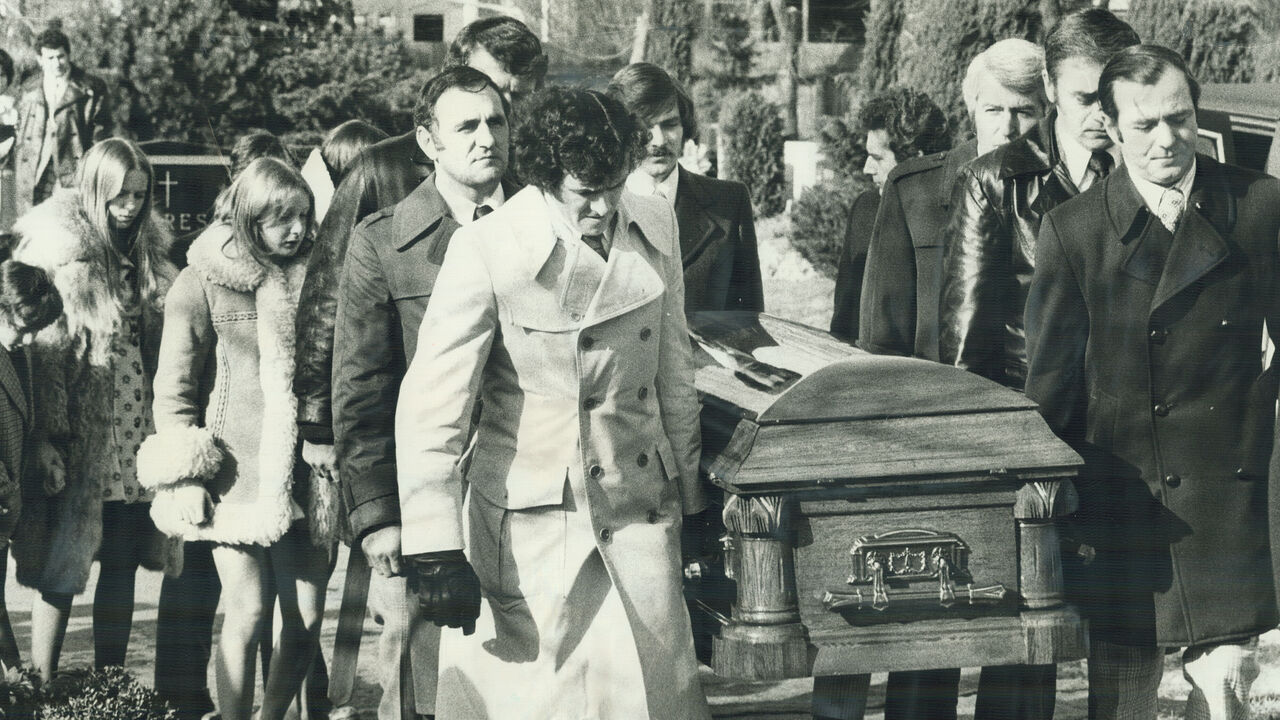
The team wore black armbands and held a moment of silence for the player who patrolled its blue line 24 hours earlier. "Everybody was crying during those moments of silence at the beginning of the game," says Seymour Knox IV, whose dad owned the Sabres at the time.
Then, they put all that aside and played a hockey game. "It was really, really amazing that the players could put their equipment on and get ready to play a game," Simonick says. "But they did. They were true professionals. Just like Tim was." Somehow, they eked out a 4-4 tie.
The schedule marched on, the armbands came off, the tributes tapered out - but the grief persisted. "From that point on, our team lost its heart. It's not that everybody didn't try to work hard. It was very heavy on our minds and hearts, so it didn't allow us to be our best," Luce says.
It wasn't only the players who missed Horton; the front office did too. "The hole extended beyond the locker room. In those days the team staff was very small, and everyone felt it. It lasts, it never really went away," Knox says. "You're feeling really bad every day. You're looking in his locker-room stall with his empty locker."
Horton's teammates shared a unique bond, but they're not the only team to endure the loss of a teammate. The Pittsburgh Penguins lost budding superstar Michel Briere in 1971. Maple Leafs defenseman Bill Barilko went missing in 1951 in a plane crash in the Northern Ontario bush, and his body wasn't recovered until 1962. Oilers forward Colby Cave died in 2020 as the result of a brain bleed caused by a colloid cyst. Goaltender Matiss Kivlenieks, who played for the Columbus Blue Jackets, died after a fireworks accident in 2021.
Hockey's also experienced mass casualties, like the bus accidents that killed members of the Swift Current Broncos and Humboldt Broncos, and the 2011 plane crash that claimed the lives of 26 players and 11 team staff from Lokomotiv Yaroslavl of the KHL. For those who've experienced teammate loss, it's a distinct type of grief.
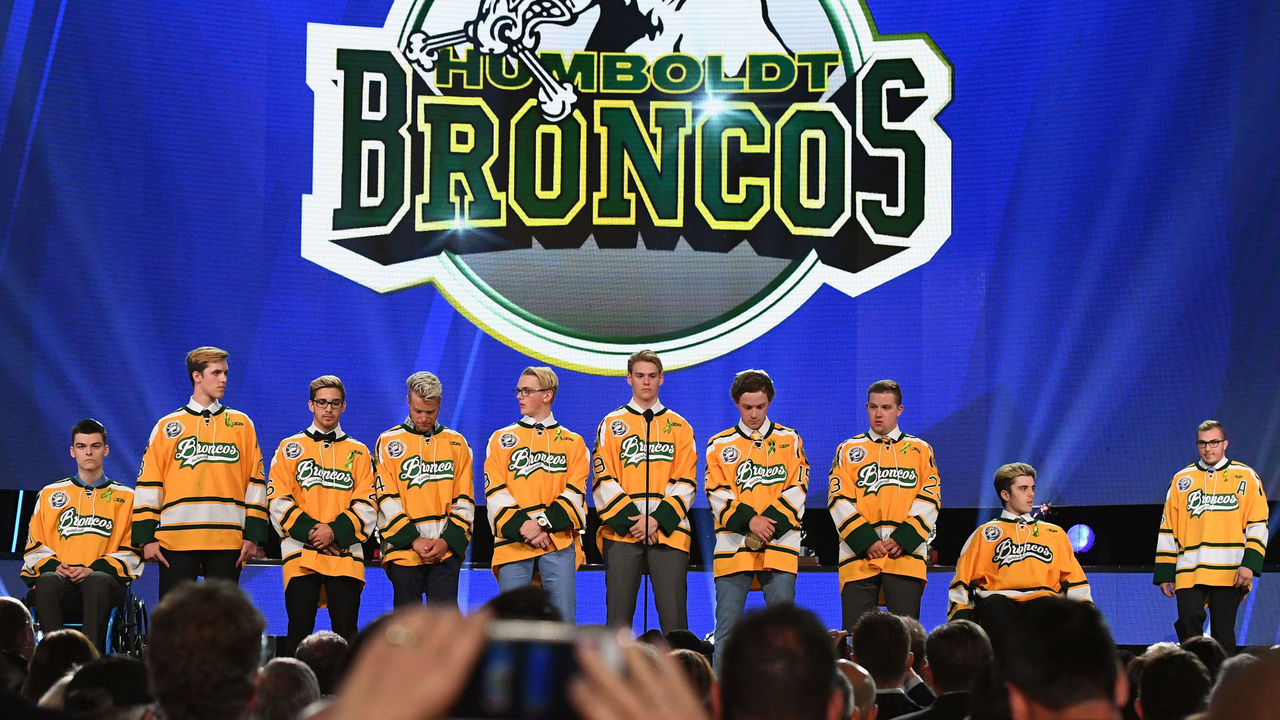
"Relationships within athletics are so tight," says Dr. Sara Beaudry-Wiltse, a sport medicine educator and consultant. "To lose someone who you're used to being with when you go to battle, when you're going into a high-intensity situation, and you're used to them being there ... not only their presence on the ice, but you're used to them being in the locker room. You're used to their shenanigans in the tunnel. Pregame. Between intermissions. You're used to their leadership style. You're used to having them involved."
She has firsthand experience with teammate loss from her role as trainer for Brigham Young University's men's hockey team in 2005. Her story also includes a dreaded phone call, but Beaudry-Wiltse wasn't on the receiving end. She made the call.
The information she was tasked with sharing: freshman Jaxon Logan died during a game after suffering cardiac arrest after blocking a slap shot with his chest. When he collapsed after limping off the ice, Beaudry-Wiltse started CPR.
"His last breath came from my lungs," she says.
Two years later, the team experienced a second blow: assistant coach Ken Dolezsar was murdered (in a case that was featured on NBC's "Dateline"). In both instances, as in the aftermath of Horton's death, there were moments of silence and tributes, but those faded long before the acute sense of grief did.
"They see the memorial patches and the moments of silence before a game, but you don't wear the patch once that season's over. You don't have the moment of silence beyond one or two games. After that, everyone has to grieve individually," she says.
What she learned from both experiences is that the death of a teammate is so profound and unique that it necessitates advance preparation. She now works with athletic organizations to develop response plans to be enacted in the case of a teammate's death.
"I think the classic mistake is not being ready for it and having to figure it out as it happens," she says. "We have a plan on to how to render medical aid. We often have a plan on how to communicate tragedies. But I like to sit down with organizations to think through the rest of this," she says. "Are we going to cancel games? Are we going to cancel practice? Who are the professionals that we're going to bring in to support us?"
Beaudry-Wiltse says planning is crucial because of the inherent closeness of teams. She uses mental health professionals as an example - building rapport should happen long before a tragedy occurs. "Sports teams turn into this tight-knit family where you don't want to talk to anybody outside of the family. When you're in tragedy, that's amplified. So, unless these relationships are already established before these tragedies happen, it's not helpful to bring in therapists, because they just sit in a room and nobody goes and talks to them."
In her eyes, it's not a question of if tragedy will strike a team, but when. "You have to have a culture of emotional and psychological safety before something like this happens."
Losing Johnny Hockey
Many athletes and team staff around the NHL this season will likely be playing and working through grief's ebbs and flows as they adjust to losing Gaudreau, whether they let it show or not.
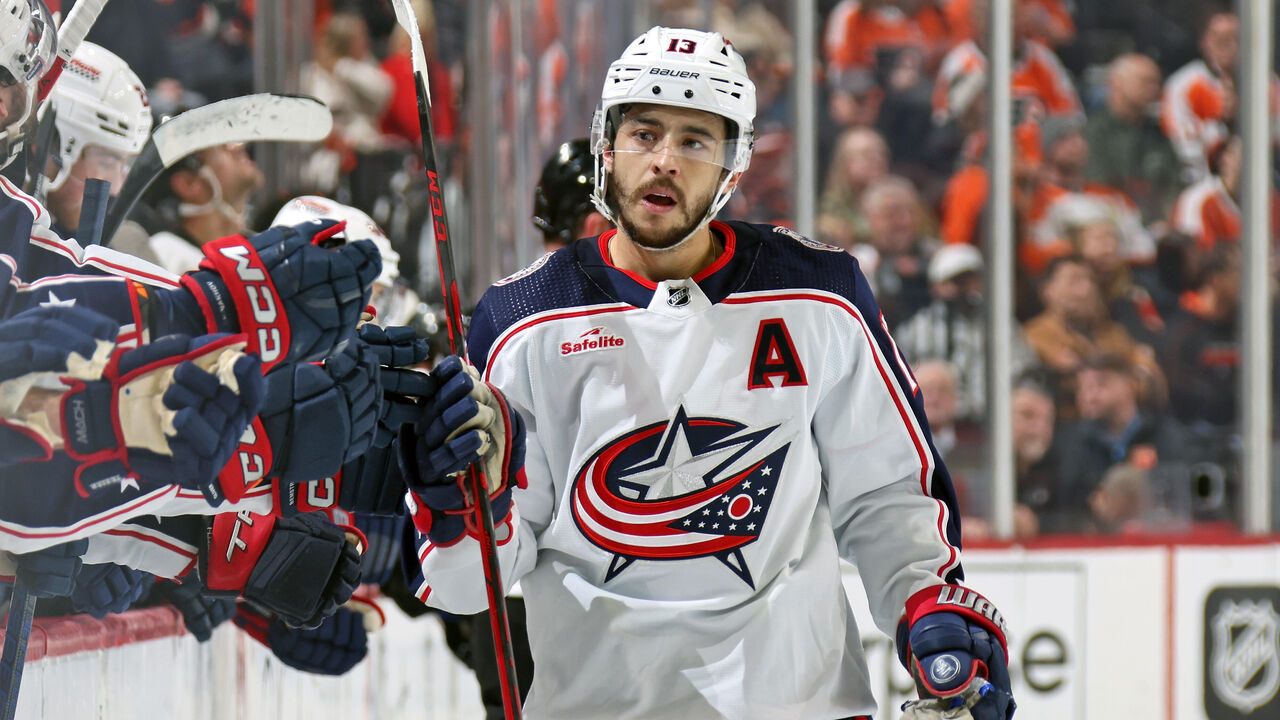
Although the Horton and Gaudreau tragedies are from different generations and happened under different circumstances, Horton's story could help illuminate some of the emotions that those who knew Gaudreau best may feel after the tributes fade and the news cycle moves on. Horton, like Gaudreau, was held in high regard by much of the hockey world. "He was well respected by the whole league, not just the Sabres," Luce says.
The impact of Horton's death wasn't limited to the teams he played on. "The reaction for Tim was like a shock affecting the whole league," Meehan says. "I realize now that Johnny's tragedy probably has a similar impact."
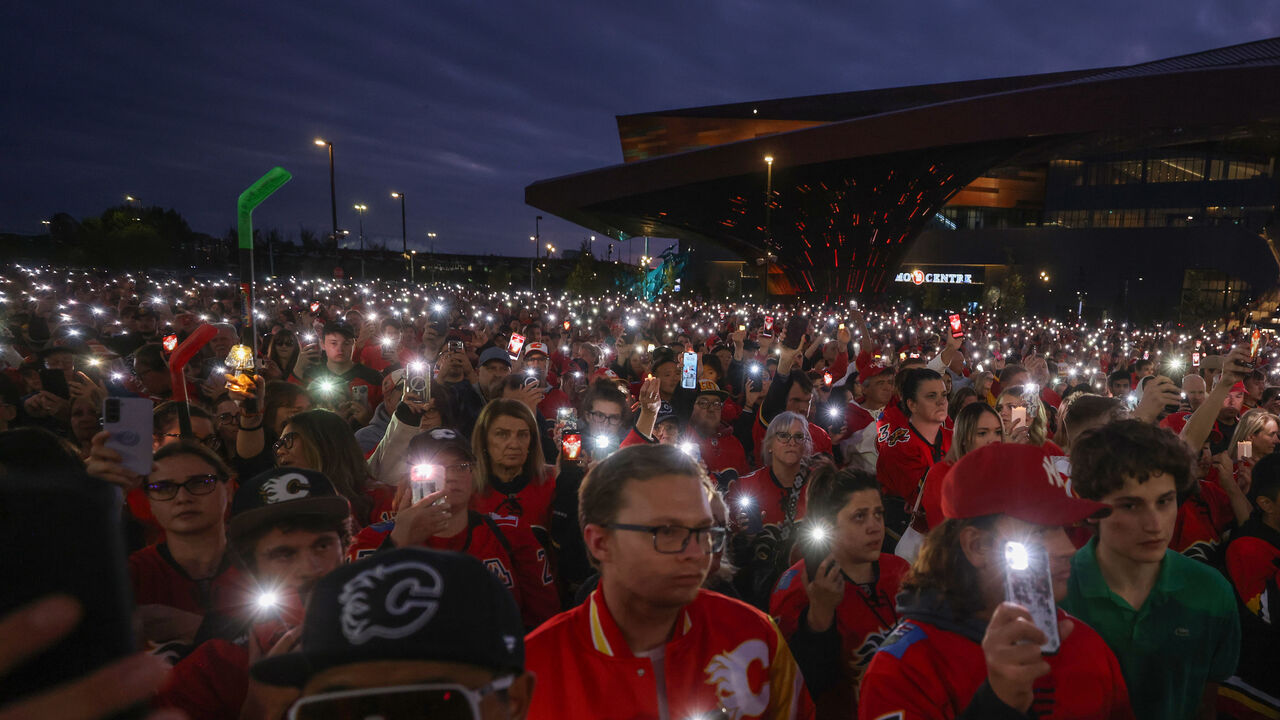
What helped Horton's friends heal was hockey itself. "The biggest thing that helped me was knowing Tim as well as I did and knowing that he loved to play the game of hockey," Luce says. "He just loved being with a team. It was instilled in me by him to love the game. I loved the game prior to that, but it was fortified by Tim. I felt that he would want me to go on and live my life and remember him. He was the epitome of wanting to love and play the game."
That's where Luce sees the strongest connection between Horton and the man whose passion earned him the nickname "Johnny Hockey."
"Just watching Johnny play, he loved to play the game, and I'm sure his brother did, too," Luce says.
He'll never stop missing his friend, but Luce takes comfort in the legacy Horton left, the one his teammates carried forward for him: that love of the game. "It's a great legacy to have," he says. "It's a great way for him to be remembered."
Jolene Latimer is a feature writer at theScore
HEADLINES
- Bennett replaces injured Cirelli on Canada's Olympic roster
- Stolarz shines vs. Oilers as Maple Leafs head into break with 3 straight wins
- Merzlikins notches shutout as Blue Jackets move to 9-1-0 under Bowness
- Top Shelf: Handing out superlative NHL awards ahead of Olympic break
- Finland names Bruins' Korpisalo as Luukkonen injury replacement